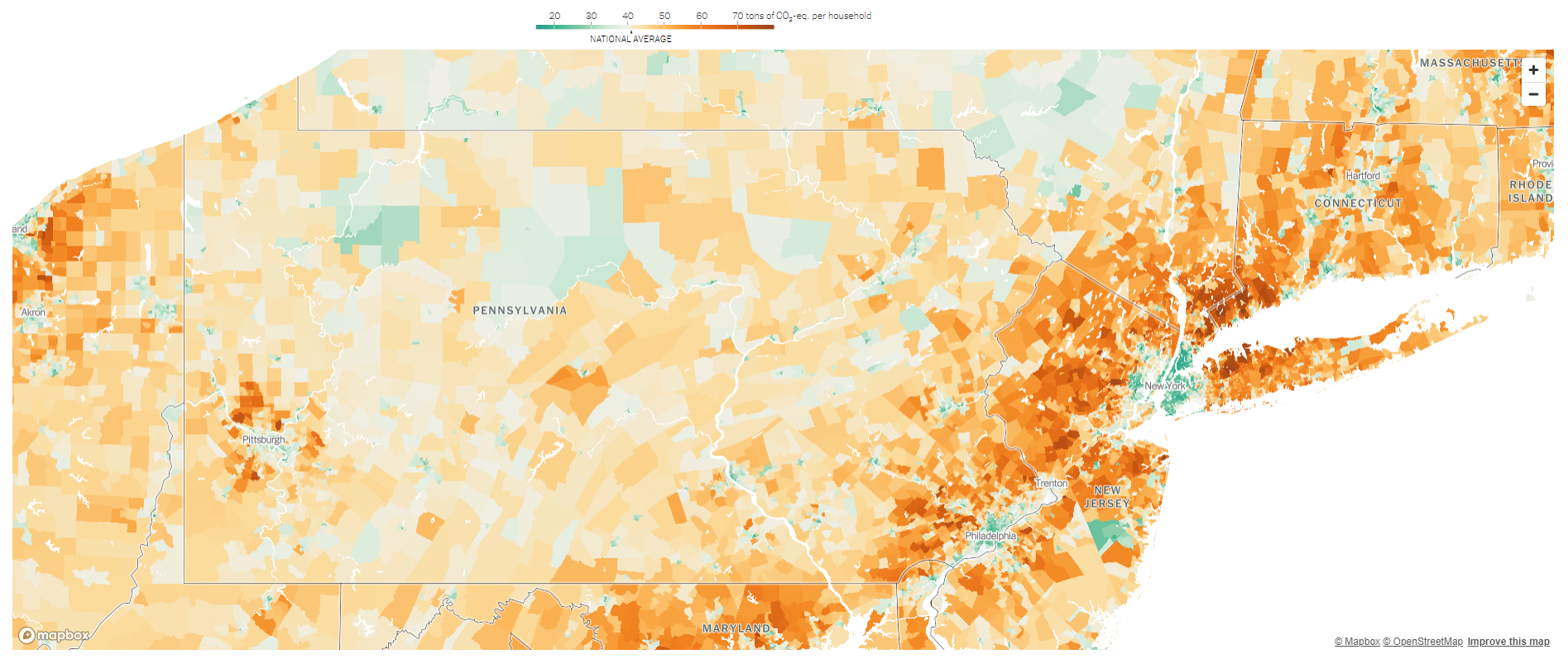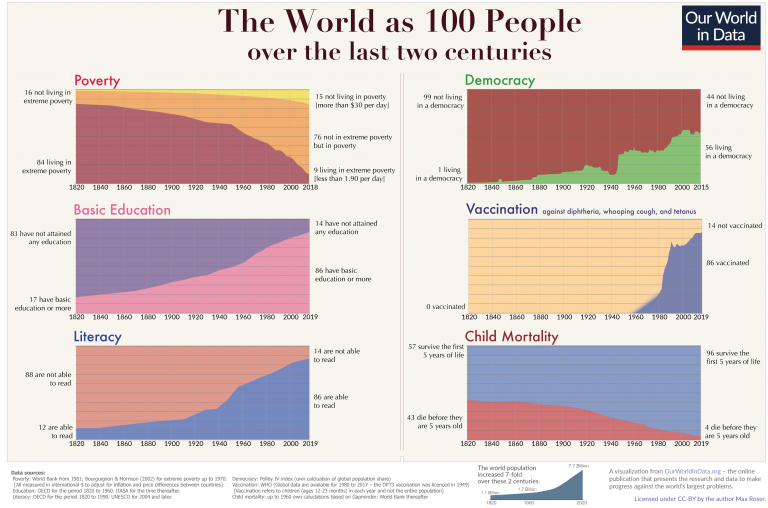Things I’ve Changed My Mind About #1
July 2, 2023 at 6:21 PM
1. Cities and the environment:
I used to think cities were bad for the environment. Now I think they are, without a doubt, good for the environment.
- Cities have bad environmental aesthetics. They are the opposite of what we call ‘nature’ - everything is man made, there’s little greenery or biodiversity, the air is comparatively dirty, and they’re filled with loud, unnatural noise. However…
- People in cities use far less land. People in cities live close together, while people in the suburbs and countryside are spread far apart. 100 people living in a city take up much less space, and therefore save much more nature, than the same 100 people living in the suburbs or countryside. If nobody lived in cities, there not would be much land left for nature.
- Density = efficiency. People require water, energy, food, and all sorts of other physical goods. Those goods need to be moved from where they’re produced to where people live. If people are spread far apart, it takes more energy to move those things to them then it does if they are packed close together. People also prefer buildings that are heated and cooled. Multi-unit dwellings, which have walls shared between tenants, are more efficient to heat and cool than detached homes. The larger/denser the building, the greater the benefit.
- Transportation: The density of cities means that people live closer to the places they need to go. They have to travel less far (and burn less fuel), to travel to those places. Density also makes buses, subways, and other transit viable - all of which are more efficient than cars.
Relative to other arrangements of people, cities are great for the environment. One of the best things we can do to protect the environment is get more people to live in them.

2. ‘Buying Local’
I used to think that ‘buying local’ was better for the environment and society than buying mass-produced goods shipped across the world. Now, I don’t think this is true - and that if we all did this, it would be disastrous.
- Intuitively, the idea that buying local is sustainable makes some sense: transporting food across the globe seems really inefficient compared to growing it nearby, right?
- The problem is, most of the emissions from food production come from growing the food, rather than transporting it. Food is transported across the world mostly by ocean vessels which are very efficient. Most of the emissions from food production come from changes to land use (e.g. removing forest to plant crops), production of fertilizers, and machinery to plant/tend crops. Even if all these factors were equal but we grew all our food locally, we wouldn't reduce emissions by much.
- Globalization allows crops to be grown where environmental conditions are best suited for their production. The same is true for the production of fertilizers used in agriculture. The increased efficiency this brings more than offsets the minor increases in emissions from moving those goods around the world.
- Eating locally doesn’t work at scale. Growing crops where they grow best and leveraging economies of scale by planting large farms, tended by large machinery, lets us produce more food overall. If everyone was forced to only eat locally grown food, the result would be widespread famine and a massive reduction in the world population.
- On the other hand, what we eat greatly effects environmental impact - in short, meat is much, much more polluting than plants
As with the poor environmental aesthetics of cities, there’s something aesthetically pleasing to many people about locally grown, small batch food. But the reality is that ‘local’ is a luxury, not a path to global food security. If you like buying locally grown food, or growing food yourself, I think that's fine! Just realize that it’s not a viable solution for society writ-large.
3. Nuclear Energy
I used to think it nuclear power plants are dangerous, that the radioactive byproducts they create are a big problem, and that we should prefer them less than other renewable energy sources. Now, I think they are not very dangerous and that we should build lots more of them.
- Previously, I under-appreciated how dangerous other forms of energy are. Burning things to generate energy is tremendously bad for people’s health. The burning of coal has caused millions of premature deaths over the last half century
- Conversely, I overrated how risky nuclear power plants are. Nuclear power plants are a textbook example of the “availability heuristic” tricking us. There are a few memorable, frightening events that come to mind easily when we think of nuclear, whereas fossil fuels do their killing inconspicuously. Had we not kneecapped the nuclear industry in the 80s and 90s, many of the millions of premature deaths from fossil fuel pollution could have been prevented
- I also overrated how dangerous the radioactive byproducts of nuclear plants are. Basically, you don’t want to grind them into dust and inhale them, but otherwise they probably won’t hurt you. Encasing them in concrete is a fine solution, and storage takes up very little space compared to, say, a solar farm with the same generation capacity. And of course, coal-fired plants have byproducts as well, which have already killed millions of people.
- Solar and wind energy, at the scale of energy production we need, will occupy enormous land area - in the US, an area larger than Lake Michigan - just to meet current energy demand. Ideally, we will continue to expand energy supply until energy is no longer a major constraint on technological and economic progress, which would require far more land still. Nuclear is roughly 75 times as space-efficient as solar.
- Solar and wind energy have highly variable output. Battery storage, inter-regional transmission, and overproduction help overcome this, but extended adverse weather patterns will always pose a risk. We will still need a major source of steady ‘baseload’ energy supply, and nuclear fills that need (geothermal is good for this as well, but requires further technology advances to reach the necessary scale).
To be clear - solar and wind energy are fantastic, and are their plummeting price is single biggest reason we will be able to solve climate change! But nuclear is also good and important.
see also: How many lives has nuclear energy saved?
4. Capitalism
Through high school and college, I had started to think of capitalism as mostly bad and slightly good. Now I think it’s mostly good and slightly bad.
Mostly good:
- In short, life has become dramatically better for almost everyone in the world over the last two centuries, and I think the spread of capitalism is a primary contributor to this
- Capitalism incentivizes people to solve the world’s problems. It rewards people for producing things that other people value. This reward structure has driven astonishing innovation and economic growth over the last 200 years, leading to dramatically increasing living standards over that span

- So long as human labor is still required to improve living standards, it’s important to incentivize people to contribute their labor and devise more efficient ways to produce value with that labor. Other economic systems are worse because they don’t incentivize this to the same degree, or even provide the opposite incentive.
- Alternatives, communism and socialism, have a poor track record of producing prosperous, free societies
Slightly bad:
- Capitalism can incentivize exploitation (forming monopolies on critical goods, then lowering wages and increasing prices), unsustainable practices (releasing pollution to produce goods), or acting immorally to increase profits (selling treatments for a disease but not a cure). However, I think these problems can be overcome by regulation - taxing pollution, breaking up abusive monopolies, using tax-funded prize pools or other strategies to reward medical breakthroughs.
- Capitalism can lead to dramatic inequality. This is partially what makes capitalism so effective - it gives fabulous riches to people who create valuable things - but it also leads to a world where we have both trillionaires and people living in dire poverty.
- If we have the ability as a society to eliminate extreme poverty and provide a baseline level of food, shelter, and medical security, it seems morally wrong not to do so. I think a robust social safety net that guarantees these things, perhaps funded by modest wealth redistribution through taxation, is necessary for the best implementation of capitalism.
Generally speaking, I think that ‘capitalism’ should have an overall positive connotation, and that the current fad of attributing every modern inconvenience to 'late-stage capitalism' is lazy and misguided.
